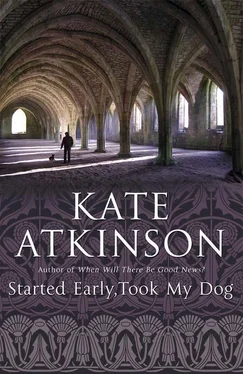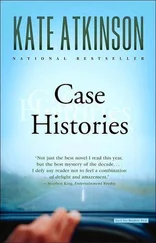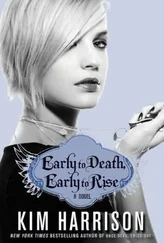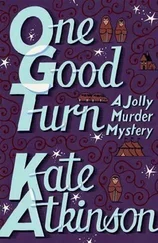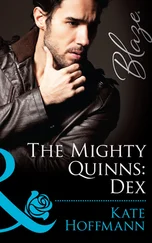They had strolled between the two Grecian temples – follies, built to amuse eighteenth-century aristocrats, now in the custody of the National Trust. ‘Crikey, fancy having all this as your private picnic ground,’ Julia said. ‘Imagine.’ She sounded even more husky than usual. ‘High pollen count,’ she said, shaking a packet of Zyrtec at him. Jackson was relieved that Nathan showed no sign of having inherited his mother’s lungs (or, indeed, her histrionic disposition).
‘No one should be allowed to own a view like this,’ Jackson said.
‘Ah, you can take the boy out of his collectivist past, but you can’t take the collectivist past out of the boy.’
‘That’s nonsense,’ Jackson said.
‘Is it?’
Nathan skipped ahead of them on the grass. ‘The boy’, Julia called him, bonhomous with love. The only boy. Men were a continual presence in Julia’s life but always of peripheral importance, including, Jackson suspected, her arty-farty husband (hats off to the man who managed to stay married to inconstant Julia). But not the boy, the boy beamed hotly at the centre of her universe.
‘Does Jonathan know you’re here?’ he asked.
‘Why should he?’ Julia said.
‘Why shouldn’t he?’ Jackson said.
She ignored the question. There was nothing you could do with her, she was impossible. (In that, at least, she was constant.)
‘Bare ruined choirs and all that,’ Julia said, changing the subject. ‘Shakespeare, the dissolution of the monasteries,’ she added instructively, having over the years realized the great black holes in Jackson ’s general knowledge.
‘I know,’ he said. ‘I know that. I’m not entirely ignorant.’
‘Really?’ she said, absent-mindedly rather than ironically. Her attention was all on the boy, none on the man. Jackson had, in fact, learned a great deal about the shock and awe of the Reformation in the course of his wanderings around the abbeys of Yorkshire but there was no point in being didactic with Julia, she was always going to know more about everything than him. She was the product of a sound education and a good memory, while, let’s face it, Jackson was in possession of neither.
Jackson ignored Julia in turn, gazing meditatively (some – mostly women – might say mindlessly) at the amphitheatre, nature’s heavenly bowl, that contained Rievaulx. Even in ruins the abbey was matchless, celestial. Awesome. Awesome , his daughter Marlee’s blasé teenage voice sounded in his head. By the time Nathan was a teenager Jackson would be into his sixties. His diamond years.
‘Cheer up, sweetie,’ Julia said, ‘it may never happen.’
‘It already has,’ Jackson said gloomily.
*
Jackson had occasionally to remind himself that there was a third purpose to his leisurely Byzantine progress around the country. Everything came (and went) in threes, as far as he could see. Three Fates, three Furies, three Graces, three Kings, three monkeys, a threepersoned God.
‘Three-headed dogs,’ Julia added. ‘To the Pythagoreans, three was the first real number, because they saw it as having a beginning, a middle and an end.’
Jackson was working on behalf of a client. Despite the fact that he was no longer a private detective, despite the fact that he no longer had clients, that he no longer dabbled in the soul-destroying tedium of divorce cases and debt chasing and missing pets, despite all that, he had somehow acquired a woman called Hope McMaster who lived as far away from Yorkshire as you could get without getting closer again. New Zealand, in other words.
He should have said no, in fact, he was pretty sure he did say no when Hope McMaster sent him a long email (too long, a life story) out of the blue at the end of the previous year. I was adopted and I wondered if you could find out some information about my biological parents? How uncomplicated that sounded to his ears now.
Exactly how Hope McMaster had got hold of a contact address for him was unclear but somewhere along the line – as was so often the case – it seemed to involve Julia (‘a friend of a friend of a friend’). Nowhere in the world was safe. Julia probably had friends on the moon (or friends of friends of friends, ad infinitum). And somehow six degrees of separation from Julia always ended up at Jackson.
In the course of his lackadaisical odyssey around the country Jackson had been able to dovetail neatly the stalking of his thieving false wife with the pursuit of Hope McMaster’s case. Cornwall, Gwynedd, Doncaster, Harrogate were all locations where he had tried unsuccessfully to hunt down Hope McMaster’s mysterious identity. ‘So,’ Julia said, as they left Rievaulx Terraces behind them and headed towards the comforting arms of the Black Swan in Helmsley, ‘you’re basically looking for two women, your wife and Hope McMaster, and you have no idea who either of them really are.’
‘Yes,’ Jackson said. ‘Exactly so.’
On the outskirts of Leeds, he had netted Kirkstall Abbey. It was the first abbey he had come across whose stones were incongruously blackened with industrial soot from the days when all the golden fleeces were turned into bolts of cloth. Tomorrow he had an appointment with a woman called Linda Pallister, an adoption counsellor with Social Services who Hope McMaster had already been in contact with. Hope’s lawyer in Christchurch had drawn up a power of attorney, instructing Jackson to act on her behalf. Jackson had hopes for Leeds. Leeds was the place where it had all started for Hope McMaster and he very much hoped it would be the place where it would all finish.
Linda Pallister failed to keep the appointment. ‘Linda’s had to go home, I’m afraid. A family emergency,’ a woman on reception at Social Services told him. ‘But she said to reschedule for tomorrow.’
After Linda Pallister had failed to keep her appointment with him, Jackson had spent what was left of the afternoon wandering around – a boulevardier – in Briggate, the Calls, the Arcades. The Corn Exchange, the town hall (that great monument to municipal clout), the Merrion Centre, Roundhay Park – all constituted a city that seemed both familiar and at the same time utterly strange. He felt as though he was looking for something that he would only recognize when he found it. His lost youth, perhaps. Or the lost youth that he himself had been. The dirty old town he remembered had been overlaid by something new and shiny. It didn’t mean the dirty old town wasn’t still there, of course.
He reckoned that the last time he was in Leeds must have been more than thirty years ago. He used to come here as a boy when it represented the height of metropolitan sophistication, not that ‘metropolitan’ was a word in his vocabulary in those days and ‘sophistication’ didn’t rise much above buying a packet of ten Embassy and sneaking into an X-rated film. Jackson remembered shoplifting in Woolworths in Leeds. Petty things – sweets, key rings, batteries. His father would have flayed him alive if he had found out but it had never really seemed like stealing, just a cheeky flouting of authority. Now Woolworths didn’t even exist any more. Who would have thought it? Perhaps it would still be going if kids hadn’t kept on nicking the sweets and key rings and batteries. Over the years all that ill-gotten loot probably added up to a fortune.
In the Merrion Centre he had come to the aid of a confused old woman that a security numpty was trying to haul away. ‘Are you OK?’ he had asked her. ‘Do you want some help?’ Jackson voiced his personal mantra, ‘I used to be a policeman,’ which seemed to act as a reassurance. There had been something familiar about her but he couldn’t put his finger on it. She was wearing a wig which had slipped to an unfortunately jaunty angle. Jackson hoped someone would put him down before he got to that stage. He supposed he would end up having to put himself down. He planned to go out on the ice ( I may be some time ), lie down with a bottle of something as old as himself and drift off into the big sleep. He hoped global warming didn’t scupper this plan.
Читать дальше
